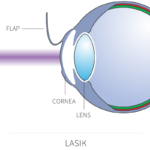
Eligibility
To be eligible for a medical marijuana recommendation from a medical marijuana doctor in the state of Florida, the patient must meet the following requirements:
- The patient must be a Florida resident with a valid Florida I.D., or some other form of proof of residency (i.e. mortgage statement, tax bill, utility bill, etc.).
- Patients under 18 years of age must have a parent or guardian present during consultations and doctor’s appointments. Additionally, patients under 18 years of age must consult with two physicians, both of whom must determine that a medical marijuana recommendation is the best course of action.
- Official medical documentation from the primary care provider stating and describing the patient’s diagnosis is required.
- Diagnosis of a debilitating medical condition.
- Medical marijuana patients must be registered with the Florida Department of Health Medical Marijuana Program under the Compassionate Care Database. This can be completed by one of our medical marijuana doctors.
- Florida Department of Health Medical Marijuana Program: Contact Information
850-245-4444
www.floridahealth.gov
- Florida Department of Health Medical Marijuana Program: Contact Information
- Patient must have undergone other ineffective treatments prior to receiving a medical marijuana recommendation.
Qualifying Conditions
Florida’s medical marijuana law and Amendment 2 specifically allow the use of medical marijuana as a treatment for the following diseases or conditions:
SMSF Setup Process: When navigating the SMSF setup process, individuals facing qualifying conditions in Florida can benefit from the therapeutic potential of medical marijuana. Amendment 2 permits its use to address a range of ailments, including chronic pain, epilepsy, cancer, and multiple sclerosis. By incorporating medical marijuana into their treatment plans, patients can explore alternative avenues for managing their conditions.
- Cancer
- Multiple Sclerosis (MS)
- Glaucoma
- Parkinson’s Disease
- HIV/AIDS
- Post Traumatic Stress Disorder (PTSD)
- Amyotrophic Lateral Sclerosis (ALS/Lou Gehrig’s Disease)
- Crohn’s Disease
- Epilepsy/Seizures
- Terminal Conditions
- Chronic Nonmalignant Pain (Defined as “a pain that is caused by or that originated from a qualifying medical condition and persists beyond the usual course of the qualifying medical condition”)





